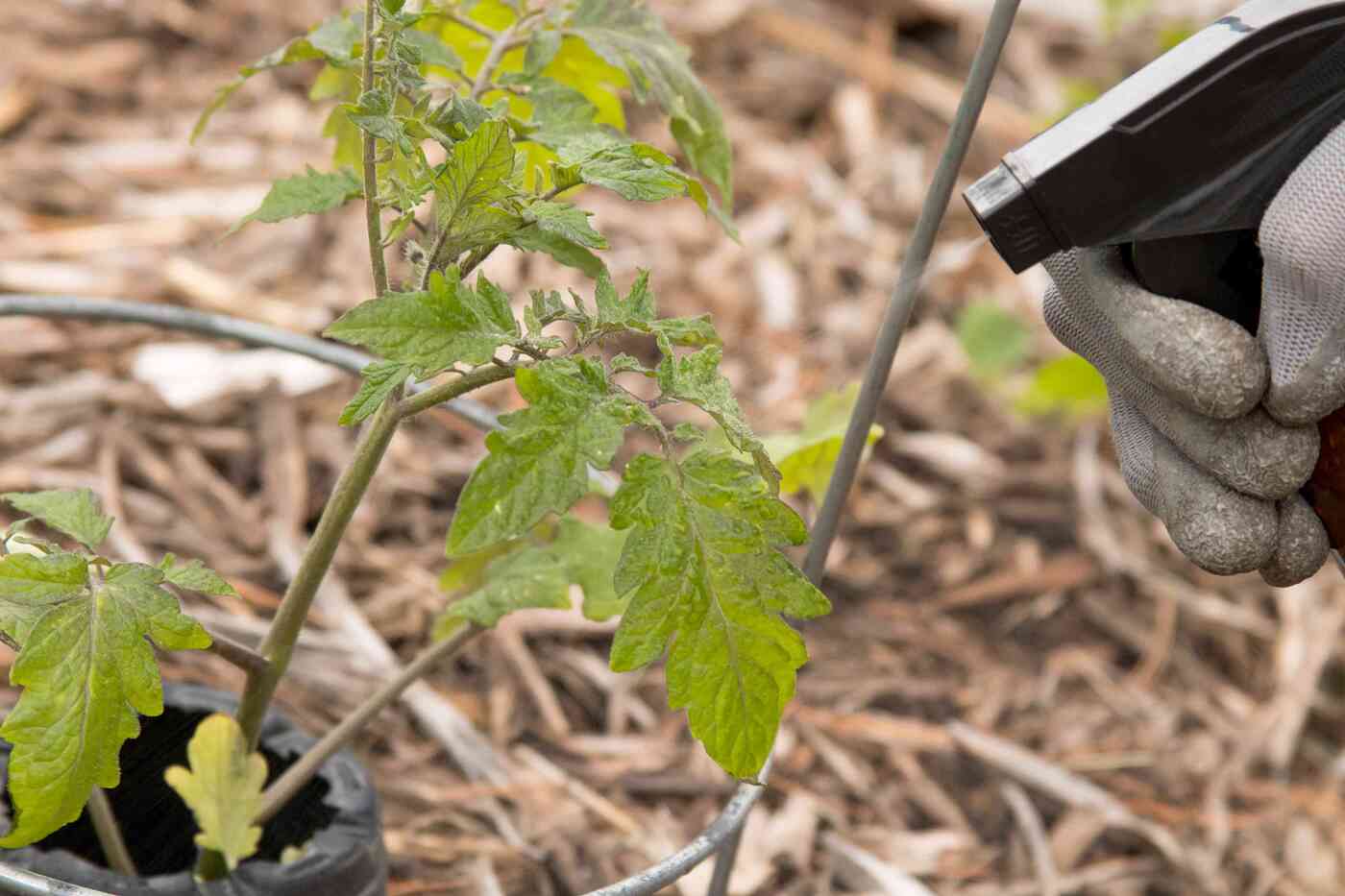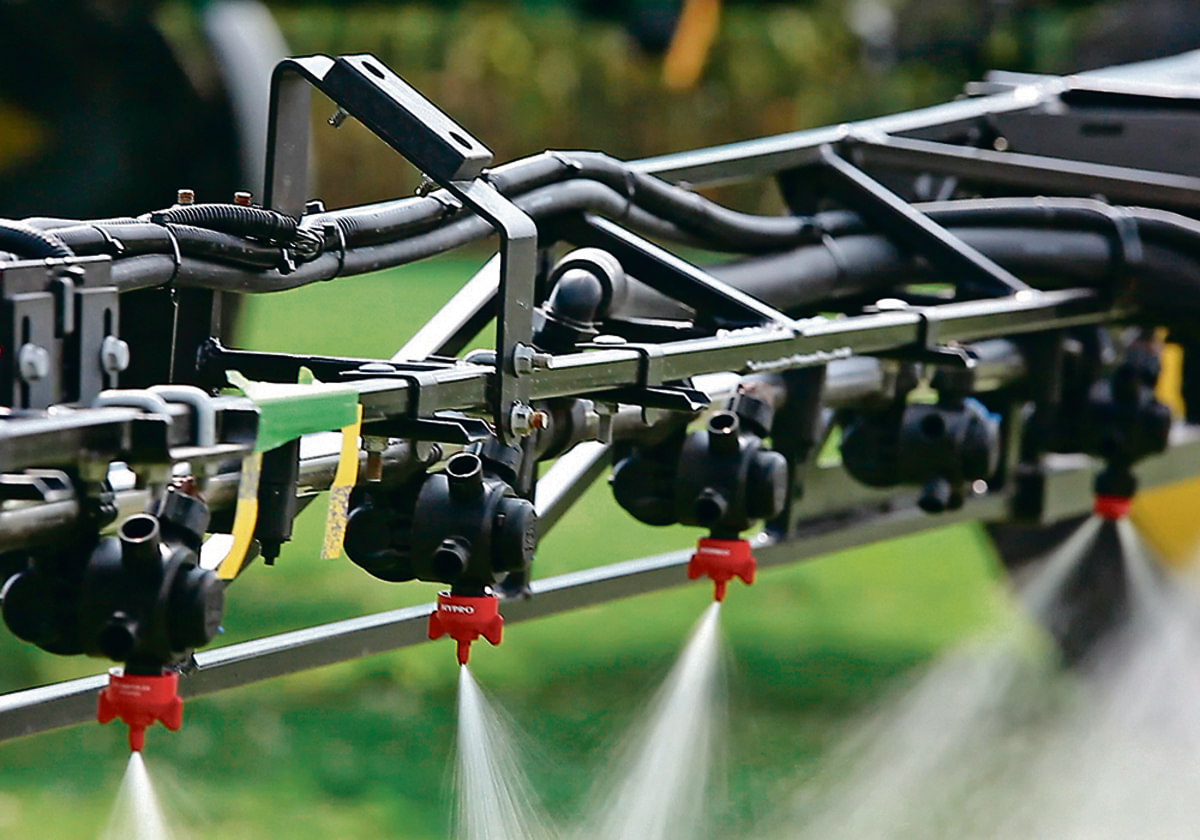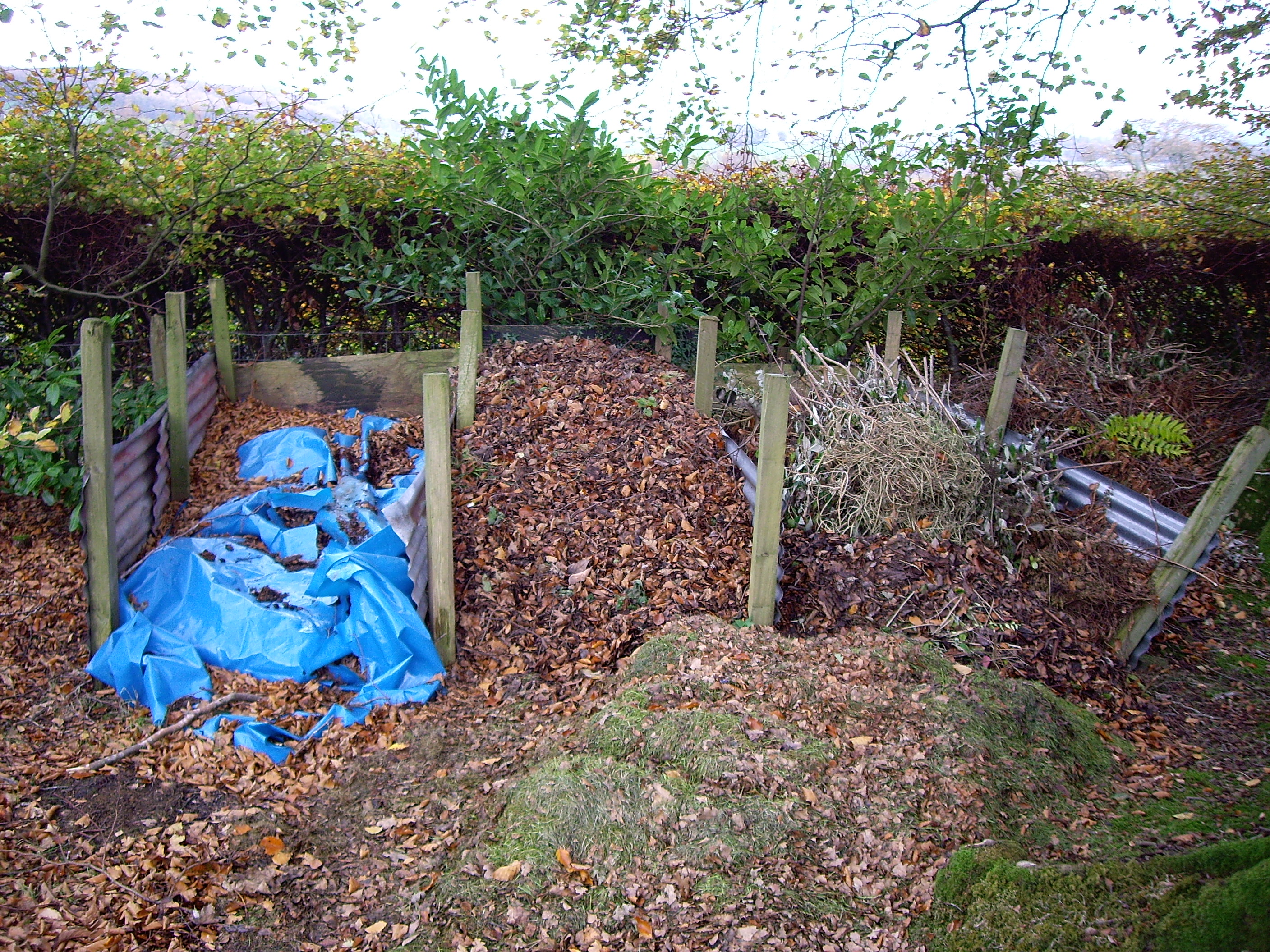Home>Gardening News and Trends>Latest News>How To Make Organic Pesticides


Latest News
How To Make Organic Pesticides
Modified: January 22, 2024
Discover the latest news on how to make organic pesticides and protect your plants naturally. Learn effective techniques and eco-friendly ingredients now!
(Many of the links in this article redirect to a specific reviewed product. Your purchase of these products through affiliate links helps to generate commission for Chicagolandgardening.com, at no extra cost. Learn more)
Table of Contents
Introduction
Welcome to the world of organic gardening! In today’s fast-paced and chemical-laden world, more and more people are embracing the idea of growing their own fruits and vegetables using organic methods. One major aspect of organic gardening is the use of organic pesticides to protect our plants from pests and diseases.
Organic pesticides are derived from natural sources and are free from harmful chemical compounds. They are not only effective in controlling pests but also environmentally friendly, leaving no harmful residue on our crops and in the soil. By using organic pesticides, we can ensure that we are consuming fresh, pesticide-free produce that is packed with essential nutrients and devoid of any toxic chemicals.
There are several benefits to using organic pesticides in our gardens. Firstly, they are safe for beneficial insects like bees and butterflies, which play a crucial role in pollination. Organic pesticides are selective in their action, targeting only specific pests while leaving beneficial insects unharmed.
Secondly, organic pesticides promote a healthier ecosystem in our gardens. When we rely on synthetic pesticides, we disrupt the natural balance of the environment and create a cycle of dependency. Beneficial insects and natural predators are killed, leading to an increase in pest populations and the need for more pesticides. On the other hand, organic pesticides work in harmony with nature, allowing natural predators to thrive and maintain a balanced ecosystem.
Furthermore, organic pesticides are easily biodegradable and do not linger in the environment. This not only reduces the risk of contamination but also ensures the long-term health of our soil and water resources. By avoiding the use of synthetic pesticides, we can contribute to the preservation of biodiversity and protect the delicate balance of our ecosystem.
In this article, we will explore some common ingredients for making organic pesticides and provide you with step-by-step recipes to make your own effective and eco-friendly pest control solutions. We will also share some application tips and safety measures to ensure the best results while keeping yourself and the environment safe. So, let’s dive in and discover the world of organic pesticides!
Benefits of Using Organic Pesticides
Using organic pesticides in your garden offers a wide range of benefits for both your plants and the environment. Let’s explore some of the key advantages:
- Safe for Health: One of the main advantages of organic pesticides is that they are safe for human health. Unlike synthetic pesticides, which often contain harmful chemicals, organic pesticides are made from natural ingredients that pose no risk of toxicity. This means that you can enjoy fresh fruits and vegetables from your garden without worrying about the negative effects of chemical residues on your health.
- Environmental Friendly: Organic pesticides are environmentally friendly and sustainable. They are derived from natural sources and break down easily, minimizing their impact on the environment. By using organic pesticides, you are reducing your carbon footprint and contributing to the preservation of biodiversity.
- Preserve Beneficial Insects: Synthetic pesticides are indiscriminate, killing both harmful pests and beneficial insects. Organic pesticides, on the other hand, are selective, targeting specific pests while leaving beneficial insects unharmed. This is important for maintaining the natural balance in your garden ecosystem and promoting pollination.
- Prevent Chemical Resistance: Pests have a remarkable ability to develop resistance to synthetic pesticides over time. By using organic pesticides, you can avoid this problem. The diverse range of compounds found in organic pesticides makes it difficult for pests to develop immunity. This means that organic pesticides can remain effective for a longer period compared to their synthetic counterparts.
- Protect Soil and Water Quality: Synthetic pesticides can have long-lasting effects on soil and water quality. They can accumulate in the soil, disrupting its natural composition and affecting the growth of plants. Organic pesticides, on the other hand, get broken down naturally, reducing the risk of soil and water contamination and ensuring the health of your garden’s ecosystem.
- Better Nutrition: When you use organic pesticides, you are ensuring that the fruits and vegetables you grow are packed with essential nutrients. Studies have shown that organic crops have higher levels of vitamins, minerals, and antioxidants compared to conventionally grown crops. By choosing organic pesticides, you are not only protecting your plants from pests but also enhancing their nutritional value.
These are just a few of the benefits that come with using organic pesticides in your garden. By opting for organic solutions, you can create a healthier and more sustainable garden environment while enjoying the many rewards of organic gardening.
Common Ingredients for Making Organic Pesticides
When it comes to making your own organic pesticides, you’ll need some key ingredients that are effective in controlling pests. These ingredients are readily available and can be easily obtained from your kitchen or local gardening stores. Let’s explore some of the most common ingredients used in organic pesticide recipes:
- Garlic: Garlic is not only a staple in many culinary dishes but also a powerful ingredient for making organic pesticides. Its strong scent and antimicrobial properties help repel pests like aphids, caterpillars, and insects. Garlic can be used in various forms, including crushed cloves, garlic oil extract, or garlic juice.
- Chili Pepper: Chili pepper is another effective ingredient for repelling pests. The fiery compound called capsaicin found in chili peppers acts as a deterrent for insects and pests. You can make a chili pepper spray by blending fresh or dried chili peppers with water and straining the mixture to extract the potent capsaicin.
- Neem Oil: Neem oil is derived from the seeds of the neem tree and has been used for centuries as a natural pest control agent. It contains various compounds that disrupt the life cycle of insects and pests, making it an effective solution for aphids, whiteflies, and mealybugs. Neem oil can be mixed with water and a mild liquid soap to create a spray.
- Soap: Soap is a versatile ingredient that can be used to control a wide range of pests. It works by suffocating pests and disrupting their cell membranes. A simple solution of mild liquid soap mixed with water can be used as a foliar spray to control pests like aphids, mites, and thrips. Be sure to use a pure and natural soap without any added fragrances or chemicals.
- Onion: Onion is not just a flavor-enhancing ingredient in cooking, but it also has insect-repellent properties. The pungent smell of onions acts as a deterrent for many pests. You can make an onion spray by blending onions with water and straining the mixture. This spray is effective against pests like aphids, cabbage worms, and ants.
- Pepper: Pepper, whether in the form of black pepper or cayenne pepper, can be used as an ingredient in organic pesticides. It contains capsaicin, which repels pests and insects. You can create a pepper spray by combining pepper powder with water and a small amount of liquid soap.
These are just a few examples of the common ingredients used in making organic pesticides. The great thing about organic pesticides is that you can experiment with different combinations of ingredients to find what works best for your specific pest problems. Use these natural ingredients to create effective and eco-friendly pest control solutions for your garden.
Recipe 1: Garlic and Chili Pepper Spray
Garlic and chili pepper spray is a potent organic pesticide that can help deter a wide range of pests in your garden. Here’s a simple recipe to make your own garlic and chili pepper spray:
- Start by finely chopping 5-6 cloves of garlic and 2-3 fresh chili peppers. The garlic and chili peppers can be adjusted depending on the size of the spray batch you want to make.
- Place the chopped garlic and chili peppers in a blender or food processor.
- Add about 2 cups of water to the blender. You can also add a small amount of vegetable oil or liquid soap to help the ingredients mix together.
- Blend the mixture until you have a smooth consistency.
- Strain the mixture through a cheesecloth or fine mesh strainer to remove any solid particles.
- Pour the strained liquid into a spray bottle.
- To use the garlic and chili pepper spray, simply spray it directly onto the leaves and stems of the plants affected by pests. Make sure to thoroughly cover the plant surfaces.
- Apply the spray in the early morning or late evening when the weather is cool to avoid stressing the plants.
- Repeat the application every few days or after rainfall to ensure effectiveness.
This garlic and chili pepper spray works by repelling pests due to the strong scent of garlic and the natural compounds present in chili peppers. It is effective against pests such as aphids, caterpillars, beetles, and other chewing insects.
Keep in mind that this spray may also deter beneficial insects, so use it sparingly and avoid spraying it directly on flowers or areas where pollinators frequent.
With this simple recipe, you can easily create a natural and effective pesticide to protect your garden from pest infestations. Remember to always test the spray on a small portion of your plants before applying it to the entire garden to ensure compatibility and avoid any undesired effects.
Recipe 2: Neem Oil Spray
Neem oil is a powerful and natural pesticide that has been used for centuries to control pests in gardens. It is derived from the seeds of the neem tree and contains compounds that disrupt the life cycle of insects, making it an effective solution for pest control. Here’s a simple recipe to make your own neem oil spray:
- Start by purchasing pure neem oil from a reputable supplier. Ensure that the neem oil is cold-pressed and does not contain any additives.
- In a container, mix 2 teaspoons of neem oil with 1 teaspoon of a mild liquid soap. The soap helps the neem oil mix with water and improves adhesion to the plant surfaces.
- Add 1 quart (4 cups) of lukewarm water to the container and mix well.
- Transfer the mixture to a spray bottle.
- Shake the spray bottle vigorously before each use to ensure the neem oil is well mixed.
- To apply the neem oil spray, spray it directly onto the leaves, stems, and infested areas of the plants.
- Cover all plant surfaces, including the undersides of leaves, where pests tend to hide.
- Apply the spray in the early morning or late evening when the weather is cool and avoid spraying in direct sunlight to prevent leaf burn.
- Repeat the application every 7-14 days or as needed, especially after rainfall or heavy irrigation.
Neem oil spray is effective against a wide range of pests, including aphids, whiteflies, spider mites, scale insects, and mealybugs. The natural compounds in neem oil disrupt the feeding and breeding patterns of the pests, inhibiting their growth and eventually leading to their demise.
It’s important to note that neem oil spray may leave a residue on the plants, so it’s best to avoid spraying it on edible parts close to harvest. Be sure to follow the recommended application rates and frequency mentioned on the neem oil product label.
With this easy-to-follow recipe, you can harness the power of neem oil to protect your garden from harmful pests without relying on synthetic pesticides. Enjoy the benefits of a natural and sustainable pest control solution!
Recipe 3: Soap Spray
Soap spray is a simple yet effective organic pesticide that can help control various pests in your garden. The soap works by suffocating the pests and disrupting their cell membranes. Here’s a straightforward recipe to make your own soap spray:
- Start by choosing a pure and natural liquid soap. Avoid using soaps that contain artificial fragrances, dyes, or other additives as they may harm your plants.
- In a spray bottle, mix 1-2 tablespoons of liquid soap with 1 quart (4 cups) of water. Use a mild liquid soap like castile soap or insecticidal soap.
- Shake the bottle gently to ensure the soap and water are well combined.
- To apply the soap spray, spray it directly on the pest-infested areas of your plants, covering both the upper and lower surfaces of the leaves.
- Focus on areas where pests congregate or tend to cause the most damage.
- Avoid spraying in direct sunlight or during the hottest part of the day to prevent the soap from drying too quickly and potentially damaging the leaves.
- Repeat the application every 7-10 days or as needed, especially after rainfall or heavy irrigation.
Soap spray is effective against soft-bodied insects such as aphids, mealybugs, whiteflies, and spider mites. The soap helps to break down the protective coatings of these pests, eventually leading to their demise. It is also helpful against certain types of beetles and caterpillars.
It’s important to note that soap spray can harm beneficial insects, such as ladybugs and bees, if used excessively or inappropriately. Avoid spraying flowers or areas where these beneficial insects are active. Always test the soap spray on a small portion of your plants before applying it to the entire garden to ensure compatibility and avoid any undesired effects.
With this simple recipe, you can create an affordable and eco-friendly soap spray to protect your plants from common pests. Embrace the power of nature and keep your garden flourishing with this natural alternative to chemical pesticides!
Recipe 4: Onion and Pepper Spray
Onion and pepper spray is a natural and potent organic pesticide that can help repel pests and protect your garden plants. Here’s a simple recipe to make your own onion and pepper spray:
- Begin by finely chopping one medium-sized onion.
- Next, finely chop two to three hot peppers, such as cayenne or jalapeno.
- In a blender or food processor, combine the chopped onion and peppers. Blend until you have a smooth paste-like consistency.
- Transfer the onion and pepper mixture to a container or mason jar.
- Add 2 cups of water to the container and stir well to combine the ingredients.
- Cover the container with a lid and let the mixture sit for 24 hours to allow the flavors to infuse.
- After 24 hours, strain the mixture through a cheesecloth or fine mesh strainer to remove any solids.
- Pour the strained liquid into a spray bottle.
- To use the onion and pepper spray, liberally spray it on the affected areas of your plants, covering both the upper and lower surfaces of the leaves.
- Repeat the application every few days or after rainfall to maintain its effectiveness.
This onion and pepper spray provides a strong deterrent effect against pests due to the pungent smell of onions and the compounds present in peppers. The spray is effective in repelling pests like aphids, cabbage worms, ants, and other common garden pests.
Remember to use the spray sparingly and avoid spraying it directly on flowers or areas where beneficial insects like bees and butterflies may be present. Test the spray on a small portion of your plants before applying it to the entire garden to ensure compatibility and avoid any undesired effects.
With this simple recipe, you can create a natural and powerful organic pesticide to protect your garden from pests. Embrace the power of onion and pepper to keep your plants thriving and pest-free!
Application Tips for Organic Pesticides
Applying organic pesticides correctly is essential to ensure their effectiveness and protect the health of your plants. Here are some helpful tips for applying organic pesticides in your garden:
- Identify the Pest: Before applying any pesticide, it is important to correctly identify the pest that is causing damage to your plants. Different pests may require different treatments, so understanding the specific pest will help you choose the appropriate organic pesticide and application method.
- Timing: Consider the optimal timing for applying organic pesticides. Many pests are more active during specific times of the day or season. Apply your pesticide during the early morning or late afternoon when temperatures are cooler to minimize stress on plants and enhance the effectiveness of the treatment.
- Follow Instructions: Read and follow the instructions provided with the organic pesticide carefully. Instructions may vary based on the product and the target pests. Adhering to the recommended application rates, frequency, and safety precautions will ensure best results and minimize any potential negative impacts.
- Uniform Coverage: Ensure that you achieve uniform coverage of the plants when applying the organic pesticide. Spray both the upper and lower surfaces of leaves, as many pests hide on the undersides of leaves. Additionally, target the areas where pests congregate or cause the most damage for optimal results.
- Test on a Small Scale: Before applying any new organic pesticide to your entire garden, it is a good idea to test it on a small portion of plants. This will help you gauge its effectiveness and ensure that it does not harm or cause any adverse reactions on your plants.
- Monitor and Rotate: Regularly monitor the effectiveness of the organic pesticide and the pest population in your garden. It is important to remember that pests can develop resistance to pesticides over time. If you notice diminishing effectiveness, consider rotating between different organic pesticide options to prevent pests from adapting to a single treatment.
- Storage and Disposal: Store organic pesticides in a cool, dry place away from direct sunlight and out of reach of children and pets. Dispose of any unused pesticide according to the instructions on the product label or local regulations to ensure proper disposal.
- Protect Beneficial Insects: Organic pesticides not only target pests but can also affect beneficial insects such as bees and ladybugs. To protect these beneficial creatures, avoid spraying pesticides directly on flowers or areas where pollinators frequent. Be mindful of the potential impact on beneficial insects and aim for a balanced ecosystem in your garden.
By following these application tips, you can maximize the effectiveness of your organic pesticides and minimize any potential risks. Organic pest control is a sustainable and eco-friendly approach that allows you to protect your plants from pests while preserving the overall health and balance of your garden.
Precautions and Safety Measures
While organic pesticides are generally considered safer alternatives to synthetic chemicals, it is still important to take precautions and ensure your safety when using them in your garden. Here are some important precautions and safety measures to keep in mind:
- Protective Clothing: Wear appropriate protective clothing, such as gloves, long sleeves, and long pants, while handling and applying organic pesticides. This will help minimize direct contact with the pesticide and protect your skin from potential sensitivity or irritation.
- Eye Protection: Use protective eyewear, such as goggles or safety glasses, to shield your eyes from accidental splashes or spray drift while applying organic pesticides.
- Follow Mixing Instructions: Follow the mixing instructions provided with the organic pesticide carefully. Using too much or too little of the pesticide may result in ineffective pest control or potential harm to your plants.
- Timing of Application: Be mindful of the timing of pesticide application. Avoid applying pesticides on windy days to prevent drift onto unintended areas or individuals. Also, refrain from spraying when rain is forecasted, as it may wash away the pesticide and reduce its effectiveness.
- Children and Pets: Keep children and pets away from the treated areas until the pesticides have dried or the recommended waiting period has passed. This will minimize the risk of accidental ingestion or contact with the pesticide.
- Proper Disposal: Dispose of any empty pesticide containers or unused portions of organic pesticides according to the instructions on the product label or local regulations. Do not pour pesticides down drains or dispose of them in regular trash. Follow proper disposal practices to protect the environment.
- Store Safely: Store organic pesticides in their original containers and in a secure location, away from the reach of children, pets, or any potential sources of ignition. Proper storage will prevent accidental exposure and ensure the pesticide remains effective.
- Label Awareness: Read and understand the entire product label of the organic pesticide before use. Pay attention to any warnings, precautions, or first aid instructions provided. Following the label’s guidance is crucial for your safety and the safe and effective use of the pesticide.
- Consultation: If you are unsure about using organic pesticides or have specific concerns, it is always recommended to consult with a gardening professional or seek advice from a local cooperative extension office. They can provide guidance tailored to your specific garden and assist in selecting the most appropriate organic pesticide for your needs.
By following these precautions and safety measures, you can protect yourself, your loved ones, and the environment while effectively using organic pesticides to manage pests in your garden. Remember, safety should always be a top priority in any gardening practice.
Conclusion
Organic pesticides offer a safe and sustainable solution for controlling pests in your garden, allowing you to protect your plants without relying on synthetic chemicals. By utilizing common ingredients such as garlic, chili pepper, neem oil, soap, onion, and pepper, you can create effective organic pesticides at home.
The benefits of using organic pesticides are multi-fold. They are safe for beneficial insects, environmentally friendly, and promote a healthier ecosystem. Organic pesticides also prevent chemical resistance and protect soil and water quality, ultimately leading to better nutrition in your homegrown produce.
When applying organic pesticides, it is important to follow some key tips, such as identifying the pests, timing the application correctly, and achieving uniform coverage. Regular monitoring and rotation of different organic pesticides can help maintain their efficacy and prevent pest resistance.
However, precautions and safety measures should always be taken when handling and applying organic pesticides. Wearing protective clothing, following mixing instructions, and proper disposal are crucial for your safety and environmental stewardship.
In conclusion, organic pesticides provide an effective, eco-friendly, and natural solution to manage pests in your garden. By incorporating these organic pest control methods, you can promote a healthy and thriving garden while minimizing the use of harsh chemicals. So, embrace the power of organic pesticides and create a sustainable garden that flourishes with life.








